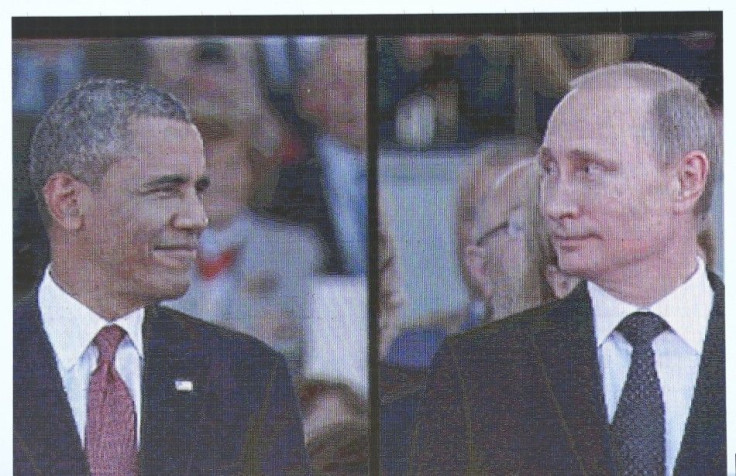Russian President Putin Dials Obama To Discuss Syria, And Ukraine: Ministers To Meet Discuss More

Russian president Vladimir Putin of Russia dialed President Barack Obama and held one to one conversation on matters of mutual interest. It was their first direct contact in four months, after the United States and Russia stuck to their respective positions, justifying their Ukraine policies despite working together on a number of issues such as Syria and Iran’s nuclear program.
The White House said both leaders brought up the ongoing war against the Islamic State in Syria and agreed for a meeting between Secretary of State John Kerry and Russian Foreign Minister Sergey V. Lavrov for looking at ways in countering the spread of radicalism in Middle East. They also shared views on the progress on talks related to Iran’s nuclear program.
Ukraine Issue
American officials said Mr. Obama raised the Ukraine issue and the separatist war and pushed Mr. Putin to abide by the diplomatic agreement known as the Minsk accord to halt the violence in eastern Ukraine despite a ceasefire.
“President Obama reiterated the need for Russia to fulfill its commitments under the Minsk agreements, including the removal of all Russian troops and equipment from Ukrainian territory,” the White House said. For allaying the misperceptions, Kremlin said Mr. Putin agreed to have his deputy foreign minister Grigory Karasin talk with Victoria J. Nuland, assistant secretary of state, about Russia’s fulfillment of the Minsk accord.
Kremlin's English website said, "significant attention" was paid on the topic of ISIS and terrorism in the Middle East. “Vladimir Putin and Barack Obama agreed to instruct Russian Foreign Minister Sergei Lavrov and U.S. Secretary of State John Kerry to hold a meeting to discuss this issue," Kremlin said.
Putin’s Strategy
Some observers say that Mr. Putin’s decision to call Mr. Obama and focus more on Syria and Iran is a way to assert his importance on the world stage despite Russia’s isolation and failure to impress the Western nations on ending sanctions against it. On Syria, both United States and Russia are holding opposite positions. While, Moscow supports the government of President Bashar al-Assad, Mr. Obama wanted him to quit. American officials hope that Mr. Putin will have a rethink on the Syrian position after seeing the rise of Islamic State and the growing threat it is posing to all countries. They are hoping, Mr Putin will apply pressure on Mr. Assad.
There is also a thinking that Mr Putin’s renewed interest on Syria might also be a way to circumvent the West’s focus on Ukraine, which is at the root of the economic sanctions faced by Russia. Incidentally, Mr Putin’s call came on the same day the supreme allied commander of NATO, cited the continuous flow of ammunition from Russia across the border to Ukraine.
(For feedback/comments, contact the writer at k.kumar@ibtimes.com.au)





















